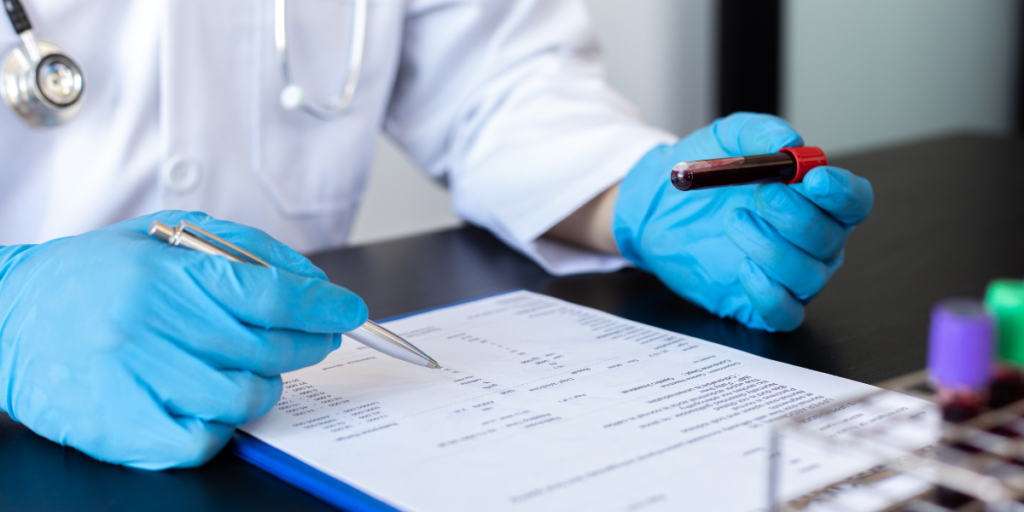Mr Lee is a 62-year-old businessman who did a routine screening offered to him by his insurance company. After the screening, he stopped by the clinic and spoke to the doctor about his current health concerns.
Doctor: “It looks like your father previously had stomach cancer. Is that something you are worried about?”
Mr Lee nodded: “Yes, but I’m not entirely sure what stomach cancer is.”
What is stomach cancer?
When people hear about stomach cancer, they think that cancer is only in the stomach. However, when healthcare professionals refer to stomach cancer, it may be cancers in the oesophagus (the food pipe leading into the stomach) or the stomach itself.
Abnormal growths develop in these parts of the body, which leads to different constellations of signs and symptoms.
According to the KKM, it is the 6th most common cancer in Malaysian men and the 10th most common cancer in Malaysian women.
An old study from 2003 identified that Malaysians with stomach cancer usually receive medical attention when the disease has progressed to a late stage, which is tough to treat.
Hence, it is imperative to undergo regular screening for this condition.
“I know my dad had stomach cancer, but does that mean I will get it?” asked Mr Lee as he felt like he was a healthy man who eats well and exercises frequently.
Am I at risk for stomach cancer?

As with many other ailments, certain traits predispose an individual to cancer. These traits are what we call “Non-modifiable”. They cannot change, such as our genetics and age.
Other traits are “Modifiable”, meaning we can take steps to change the way we do things to prevent cancer.
Non-modifiable Traits
Male gender – Males are at a higher risk of contracting stomach cancer than females. It is not known why. However, one hypothesis is that the female hormone oestrogen may have protective effects on the stomach lining, protecting it from infection by H. pylori.
Age > 60 years old – As we age, our body accumulates damage to our cells. That increases the risk of getting cancers like stomach cancer.
Family History – An individual’s genetics may increase their risk of getting stomach cancer. When first-degree family members have stomach cancer, one is at higher risk.
Modifiable Traits
Smoking – The usage of cigarettes leads to many different types of cancers. A person is twice as likely to get stomach cancer if they smoke cigarettes regularly.
H. pylori infection – This bacterium is generally present in individuals with stomach cancer. It causes changes in the chemical balance of the stomach, predisposing an individual to stomach cancer.
Diet – Certain foods such as smoked meats, salted meat, and pickled vegetables can cause stomach cancer. This processed food contains chemicals called nitrates which may lead to cancerous growth.

At first glance, it appears that Mr Lee has several non-modifiable risk factors, such as his gender, age, and family history of stomach cancer. He also smokes cigarettes to cope with the ongoing stress of running a business.
Mr Lee got worried and wondered if he had stomach cancer.
Do I have stomach cancer?
Symptoms of stomach cancer are often very vague. Therefore, it is advisable to go for regular screenings and checkups with your doctor.
However, there are signs and symptoms that you can look out for that might indicate that something is wrong.
Here are some examples:
Unintentional weight loss/ Poor appetite
Cancer cells grow by using up energy and calories from our bodies. There is a reduction in appetite as cancer causes changes in the body’s metabolism. That is why despite no change in activity levels, an individual may notice that his weight is decreasing. It is one of the most common signs that there is underlying cancer.
Early satiety
Stomach cancers can grow and decrease the volume of the stomach. They surround the stomach wall and prevents the stomach from expanding when eating. One may feel full despite eating only small meals.
Difficulty swallowing (Dysphagia)
Some “stomach cancers” arise from a part of the oesophagus near the stomach, what we call the food pipe. A mass that grows out of the oesophagus will make it difficult for food to pass, creating a feeling that there is something “stuck” in the throat.
Heartburn / Indigestion

This symptom usually comes together with a vague discomfort in the abdominal area below the chest bone. It is casually called “reflux”. It may be difficult to distinguish if it is a sign of cancer. Reflux, also known as GERD, is a risk factor for stomach cancer.
Nausea / Vomiting
Along with weight loss, nausea or vomiting is a common sign of stomach cancer. One may feel “sick to the stomach” or throw up because the cancerous mass may be growing in a way that prevents food from being properly digested. The cancerous mass may be blocking any of the food pipes leading into or exiting the stomach.
Anaemia (low number of red blood cells)
Cancer causes some bleeding in the stomach lining. It could be something detected during lab work. However, if the bleeding is severe, an individual might experience melaena (blood mixed in stool, causing it to turn black) or vomiting blood. It comes together with symptoms of blood loss such as dizziness, shortness of breath, and tiredness.
Mr Lee was a little overweight and admitted to having reflux for some time now.
“I really love spicy food, but it gives me reflux sometimes”
said Mr Lee.
It seems like Mr Lee appears relatively healthy, so the doctor checks the report regarding his recent screening tests.
What tests can detect stomach cancer?
There are many screening tools. Lab tests and imaging scans can detect abnormalities and new growths in the stomach. The screening tests vary from one individual to another.
So, consult a doctor if you would like to screen for stomach cancer!
The following are some examples:
Routine blood tests

As mentioned earlier, anaemia (a reduction in red blood cells) is one of the indications. A routine blood test can detect this, and the doctor will compare it with previous results to see if there are any recent changes.
Upper Endoscopy (EGD)
In this procedure, a camera is passed through the food pipe to look for suspicious lesions that could indicate cancer. A biopsy is necessary if abnormal growths are present.
Endoscopic Ultrasound
In contrast with EGD, endoscopic ultrasound can detect any signs of early-stage cancer or any cancerous lymph nodes. Here, the ultrasound creates high-frequency sound waves which paint a detailed and accurate picture of bodily structures.
PET / CT scan
PET / CT scan can detect any stomach cancer that has spread to other parts of the body, such as the liver. However, it is not for screening due to the burden of cost and availability.
The doctor told Mr Lee that all his tests came back to normal, and Mr Lee breathed a sigh of relief. Mr Lee wonders if there is anything he can do to prevent stomach cancer and asks the doctor…
Can I prevent stomach cancer?
Most preventive strategies involve minimising modifiable risk factors.
Here are some examples:
Avoid smoking cigarettes

We know that cigarettes are not great for our health. It is highly beneficial to take steps to reduce/ avoid smoking cigarettes. It reduces the risk of contracting stomach cancer and other cancers too.
Reduce alcohol intake
Alcohol consumed in excess can harm the stomach lining. It may predispose an individual to develop stomach cancer.
Watch your diet
If possible, try eating a balanced diet with fresh fruits and vegetables. Also, try to limit smoked/ grilled foods and preserved foods that contain nitrates.
Testing for Helicobacter pylori
There are antibiotics and treatment regimens that can eradicate it. Therefore, it is essential to get tested for H. pylori during screening tests.
Fortunately for Mr Lee, he exercises often and consumes lots of fruits and veggies daily. He does smoke cigarettes and will try cutting down.

In conclusion, the symptoms and signs of stomach cancer can be insidious and vague, often occurring during the late stages of the disease.
High-risk individuals should opt for regular screening.
Consult your doctor if you like to talk about the disease and get screened!
References:
- http://www.myhealth.gov.my/en/stomach-cancer/
- http://www.e-mjm.org/2003/v58n5/Gastric_Cancer.pdf
- https://news.mit.edu/2011/gastric-cancer-0713
- https://specialty.mims.com/gastric%20cancer/signs%20and%20symptoms?channel=gastroenterology
- https://blog.dana-farber.org/insight/2017/12/nausea-sign-cancer/
- https://stanfordhealthcare.org/medical-conditions/cancer/stomach-cancer/stomach-cancer-prevention.html